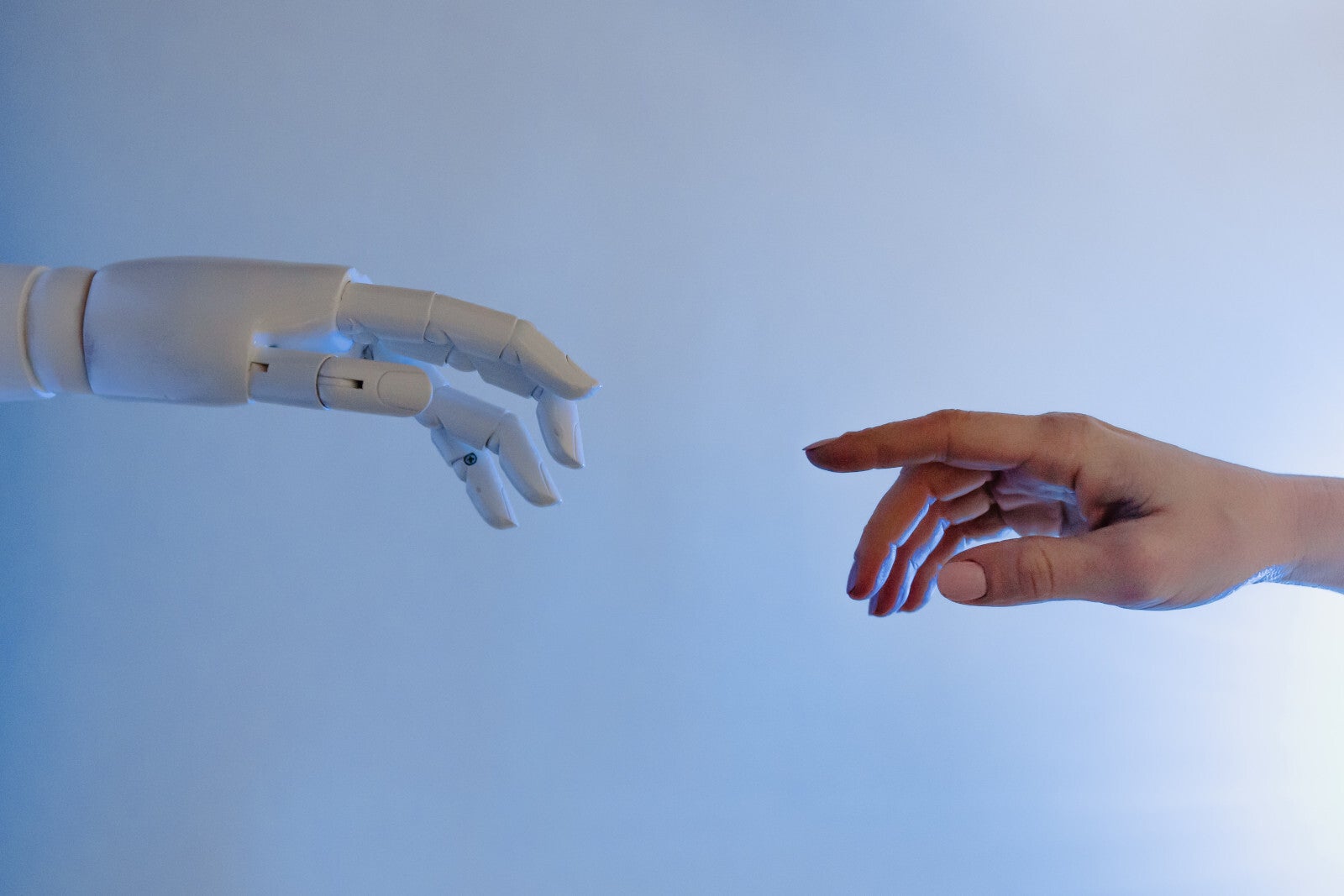Facebook's metaverse is 'not necessarily the best thing for human society'

Last Thursday, Mark Zuckerberg announced his decision to call Facebook—and subsidiary social media platforms, namely WhatsApp and Instagram—"Meta." Apparently, this is part of his grand plans to begin creating the legendary "metaverse." And what that is exactly, nobody knows—it certainly sounds like some sort of Matrix alt dimension, where virtual reality is hard to discern from real life.
The metaverse is generally understood as the next evolutionary step of the internet, which will allow us to engage with it and each other in an "extended reality" setting, or XR: an amalgam of virtual, augmented, and mixed reality.
Until now, this has been an entirely fictional foray into the future, but it seems Facebook has already made their first tangible venture into this so-called metaverse with "Horizon Workrooms," which re-conceptualizes VR for office use, by letting colleagues interact with each other in a virtual office setting.
And Facebook—er, Meta—has many plans to expand, leveraging the vast artificial technology available at its fingertips, to bring its platforms to a whole new dimension. (Although what those plans are, is far from clear to us at present.)
Former Google CEO believes this could all be one big mistake

Google ex-CEO Eric Schmidt, well versed with the wide use of artificial intelligence, put in his two cents about the whole thing in a recent interview with the New York Times.
"All of the people who talk about metaverses are talking about worlds that are more satisfying than the current world — you're richer, more handsome, more beautiful, more powerful, faster," Schmidt told the Times. "So, in some years, people will choose to spend more time with their goggles on in the metaverse. And who gets to set the rules? The world will become more digital than physical. And that's not necessarily the best thing for human society."
It's widely known that both Google and Facebook employ some of the strongest AI research teams for developing their algorithms and technology, and Schmidt was CEO for Google for a full decade (2001–2011), stepping down to the position of Executive Chairman, which he kept until 2020. His more informed understanding of the ways in which A.I.-powered technology could affect a society that widely uses it has led him to express serious concern with where it could take us.
“A.I. is imprecise, which means that it can be unreliable as a partner,” he told the New York Times. “It’s dynamic in the sense that it’s changing all the time. It’s emergent and does things that you don’t expect. And, most importantly, it’s capable of learning."
No, artificial intelligence will not rise and kill us overnight.

Schmidt doesn't take the common view, enhanced by popular film and fiction (and supported by Elon Musk) that "by unleashing A.I., eventually, you’ll end up with a robot overlord that’s 10 or 100 or 1,000 times smarter than the humans."
"My answer is different," says Schmidt. "I think all the evidence is that these A.I. systems are going to think, not like humans, but they’re going to be very smart. We’re going to have to coexist.”
Schmidt believes that rather than "rising against humanity and killing us all," A.I. will affect us in other ways, ways we cannot fight as directly and easily as an open war.
“It will be everywhere. What does an A.I.-enabled best friend look like, especially to a child? What does A.I.-enabled war look like? Does A.I. perceive aspects of reality that we don’t? Is it possible that A.I. will see things that humans cannot comprehend?”

We still can't deal with the dangers of regular old social media. So how will we face a metaverse?
The damage social media has wreaked on us in its standard single-dimensional form, for the most part, lies unaddressed.
Teenagers galore are struggling with numerous eating disorders and body image obsessions as a result. Predators of all kinds have always been rampant on the social media platforms too—as are aggressive cyberbullies—there are so many issues we have yet failed to solve.
How much would all this be amplified when we morph social media into an extended reality?
“The union of boredom and anonymity is dangerous," says Schmidt, quoting an Oxford student he once met. "Especially at the intersection of addiction and envy," adds Maureen Dowd, NYT reporter.
At the heart of it, Facebook may be working to get its young audience back
Although with its "Meta" rebrand, Facebook is ultimately trying to draw away from its perception as being a social media first and foremost, that is what it started out as—and Facebook continues to be the most widely used social media in the world.
However, its user base has shifted to primarily older generations, as youngsters are moving on to TikTok, Snapchat, and other, newer, platforms. 81% of teens said they mainly use Instagram in an October survey, pushing Facebook as a brand into the background and eventual obscurity. But if the "Metaverse" takes on, this may not be for long.











Things that are NOT allowed: